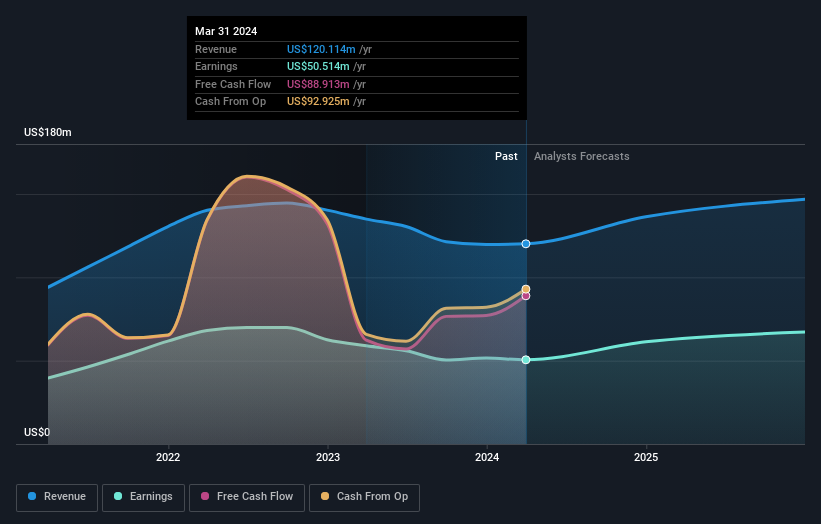MetroCity Bankshares, Inc.'s (NASDAQ:MCBS) top owners are individual investors with 50% stake, while 29% is held by insiders
Key Insights
Significant control over MetroCity Bankshares by individual investors implies that the general public has more power to influence management and governance-related decisions
47% of the business is held by the top 25 shareholders
Every investor in MetroCity Bankshares, Inc. (NASDAQ:MCBS) should be aware of the most powerful shareholder groups. And the group that holds the biggest piece of the pie are individual investors with 50% ownership. Put another way, the group faces the maximum upside potential (or downside risk).
Meanwhile, individual insiders make up 29% of the company’s shareholders. Generally speaking, as a company grows, institutions will increase their ownership. Conversely, insiders often decrease their ownership over time.
Let's take a closer look to see what the different types of shareholders can tell us about MetroCity Bankshares.
Check out our latest analysis for MetroCity Bankshares
What Does The Institutional Ownership Tell Us About MetroCity Bankshares?
Many institutions measure their performance against an index that approximates the local market. So they usually pay more attention to companies that are included in major indices.
As you can see, institutional investors have a fair amount of stake in MetroCity Bankshares. This implies the analysts working for those institutions have looked at the stock and they like it. But just like anyone else, they could be wrong. When multiple institutions own a stock, there's always a risk that they are in a 'crowded trade'. When such a trade goes wrong, multiple parties may compete to sell stock fast. This risk is higher in a company without a history of growth. You can see MetroCity Bankshares' historic earnings and revenue below, but keep in mind there's always more to the story.
Hedge funds don't have many shares in MetroCity Bankshares. Looking at our data, we can see that the largest shareholder is the CEO Nack Paek with 5.4% of shares outstanding. For context, the second largest shareholder holds about 5.2% of the shares outstanding, followed by an ownership of 4.3% by the third-largest shareholder. Interestingly, the third-largest shareholder, Don T. Leung is also a Vice Chairman, again, indicating strong insider ownership amongst the company's top shareholders.
Our studies suggest that the top 25 shareholders collectively control less than half of the company's shares, meaning that the company's shares are widely disseminated and there is no dominant shareholder.
Researching institutional ownership is a good way to gauge and filter a stock's expected performance. The same can be achieved by studying analyst sentiments. There is a little analyst coverage of the stock, but not much. So there is room for it to gain more coverage.
Insider Ownership Of MetroCity Bankshares
The definition of company insiders can be subjective and does vary between jurisdictions. Our data reflects individual insiders, capturing board members at the very least. Management ultimately answers to the board. However, it is not uncommon for managers to be executive board members, especially if they are a founder or the CEO.
Most consider insider ownership a positive because it can indicate the board is well aligned with other shareholders. However, on some occasions too much power is concentrated within this group.
It seems insiders own a significant proportion of MetroCity Bankshares, Inc.. It has a market capitalization of just US$627m, and insiders have US$184m worth of shares in their own names. We would say this shows alignment with shareholders, but it is worth noting that the company is still quite small; some insiders may have founded the business. You can click here to see if those insiders have been buying or selling.
General Public Ownership
The general public, who are usually individual investors, hold a 50% stake in MetroCity Bankshares. This size of ownership, while considerable, may not be enough to change company policy if the decision is not in sync with other large shareholders.
Next Steps:
It's always worth thinking about the different groups who own shares in a company. But to understand MetroCity Bankshares better, we need to consider many other factors. Be aware that MetroCity Bankshares is showing 1 warning sign in our investment analysis , you should know about...
If you are like me, you may want to think about whether this company will grow or shrink. Luckily, you can check this free report showing analyst forecasts for its future.
NB: Figures in this article are calculated using data from the last twelve months, which refer to the 12-month period ending on the last date of the month the financial statement is dated. This may not be consistent with full year annual report figures.
Have feedback on this article? Concerned about the content? Get in touch with us directly. Alternatively, email editorial-team (at) simplywallst.com.
This article by Simply Wall St is general in nature. We provide commentary based on historical data and analyst forecasts only using an unbiased methodology and our articles are not intended to be financial advice. It does not constitute a recommendation to buy or sell any stock, and does not take account of your objectives, or your financial situation. We aim to bring you long-term focused analysis driven by fundamental data. Note that our analysis may not factor in the latest price-sensitive company announcements or qualitative material. Simply Wall St has no position in any stocks mentioned.
Have feedback on this article? Concerned about the content? Get in touch with us directly. Alternatively, email editorial-team@simplywallst.com

 Yahoo Finance
Yahoo Finance 

